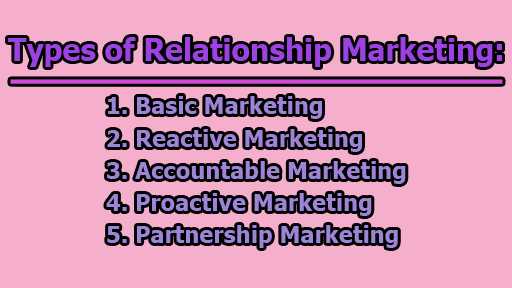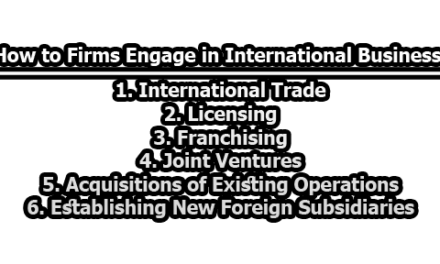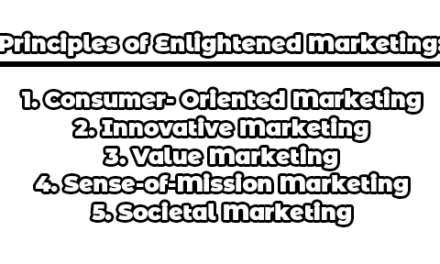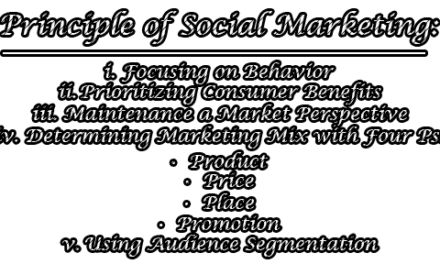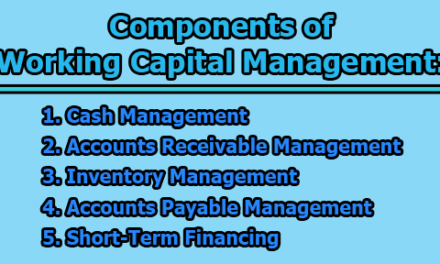Relationship marketing has emerged as a cornerstone in contemporary business strategies, shifting the focus from one-time transactions to the cultivation of enduring connections with customers. The essence of relationship marketing lies in building trust, loyalty, and satisfaction, with the ultimate goal of creating mutually beneficial, long-term relationships. In the rest of this article, we are going to know about relationship marketing, benefits and types of relationship marketing.
What is Relationship Marketing?
Relationship marketing is a strategy that focuses on building and maintaining long-term relationships with customers. It emphasizes the importance of customer satisfaction, loyalty, and engagement. Instead of one-time transactions, relationship marketing seeks to create ongoing connections with customers by understanding their needs, preferences, and behaviors. This approach often involves personalized communication, customer feedback, and the delivery of added value beyond the product or service itself. The goal is to foster customer loyalty, repeat business, and positive word-of-mouth referrals. Relationship marketing is particularly relevant in industries where customer retention and brand loyalty are critical for success.
Benefits of Relationship Marketing:
Prioritizing customization in the interactions with customers has many benefits. Now, let’s examine the extensive top benefits of including relationship marketing in a marketing plan.
1. Customer Loyalty: Building customer loyalty is at the core of relationship marketing. It involves creating a positive and lasting connection between the customer and the brand. This loyalty is not just about repeat purchases but also about a commitment to the brand, reducing the likelihood of customers shifting to competitors. Brands that successfully establish loyalty through relationship marketing can enjoy sustained patronage and trust.
2. Repeat Business: Relationship marketing aims to cultivate enduring customer relationships, resulting in repeat business. Satisfied customers are more likely to return for additional purchases and services, becoming a reliable revenue stream for the business. This not only reduces the need for continuous and costly customer acquisition efforts but also contributes significantly to the overall financial health of the company.
3. Cost-Efficiency: Acquiring new customers is often an expensive undertaking involving marketing, advertising, and promotional activities. Relationship marketing, on the other hand, focuses on maintaining and expanding existing customer relationships, which can be a more cost-efficient strategy. By allocating resources to nurturing existing connections, businesses can optimize their budget and achieve a higher return on investment.
4. Word-of-Mouth Marketing: Positive relationships lead to satisfied customers who become advocates for a brand. These advocates, driven by their positive experiences, willingly share their recommendations with friends, family, and colleagues. This organic form of marketing, known as word-of-mouth, is highly effective and can result in new customer acquisitions without the associated costs of traditional advertising.
5. Increased Customer Satisfaction: One of the primary goals of relationship marketing is to enhance overall customer satisfaction. This involves not only meeting but exceeding customer expectations. Through personalized interactions, timely support, and a genuine interest in customer well-being, businesses can create an environment where customers feel valued. This heightened satisfaction not only leads to customer retention but also contributes to a positive brand image and reputation.
6. Competitive Edge: Building strong relationships with customers provides a significant competitive advantage. In a market where products and services may be similar, a positive customer relationship can be the distinguishing factor. When customers feel emotionally connected to a brand, they are less likely to be swayed by competitive offers. This loyalty acts as a barrier, giving the business a unique position and setting it apart from competitors.
7. Adaptability to Customer Needs: Regular communication in relationship marketing allows businesses to stay agile and responsive to changing customer preferences. By actively listening to customer feedback and monitoring market trends, companies can adapt their products, services, and strategies to align with evolving customer needs. This flexibility ensures that the business remains relevant and can effectively meet the dynamic demands of the market.
8. Customer Feedback and Improvement: An essential aspect of relationship marketing is the collection of customer feedback. By actively seeking and analyzing feedback, businesses gain valuable insights into areas that may need improvement. This feedback loop not only helps in addressing specific concerns but also serves as a tool for continuous improvement. Customers appreciate businesses that listen to their opinions and take steps to enhance their overall experience.
9. Emotional Connection: Relationship marketing goes beyond transactional interactions to create emotional connections with customers. Building an emotional bond involves understanding and resonating with the values and aspirations of the target audience. When customers feel emotionally connected to a brand, they are more likely to remain loyal, forgive occasional shortcomings, and become strong advocates for the business.
10. Long-Term Sustainability: Focusing on relationships rather than short-term transactions contributes to the long-term sustainability of a business. While immediate sales are crucial, the stability provided by a loyal customer base is invaluable. During economic downturns or market uncertainties, businesses with a foundation of loyal customers are better positioned to weather challenges, making relationship marketing a key element in ensuring the long-term success and resilience of a company.
Types of Relationship Marketing:
In recent decades, marketing strategies have changed a lot. Now, building relationships with customers happens in stages, and each stage needs more commitment. Here, we’ve outlined different types of relationship marketing that are important to understand.
1. Basic Marketing: Basic marketing, also known as transactional marketing, centers on individual sales transactions. The primary objective is to persuade a customer to make a purchase. In this approach, the interaction between the business and the customer is often limited to the point of sale. The focus is on showcasing the features and benefits of a product or service to prompt immediate buying decisions. While basic marketing can lead to one-time sales, it typically lacks a sustained effort to build enduring relationships. The engagement tends to be short-term and may not prioritize post-purchase interactions or ongoing customer connections.
2. Reactive Marketing: Reactive marketing goes beyond the transactional nature of basic marketing by actively responding to customer inquiries, concerns, and feedback. This form of relationship marketing places an emphasis on customer service and support after the initial sale. When customers reach out with questions or issues, businesses practicing reactive marketing strive to address these promptly and effectively. This approach acknowledges the importance of post-purchase interactions in shaping the overall customer experience. By being responsive to customer needs, businesses can enhance customer satisfaction and create a foundation for building ongoing relationships.
3. Accountable Marketing: Accountable marketing takes relationship building to the next level by proactively seeking customer feedback and taking responsibility for customer satisfaction. In this approach, businesses actively measure and monitor customer satisfaction through surveys, feedback forms, and other mechanisms. The collected insights are then used to make informed decisions aimed at improving products, services, or overall customer experience. Accountable marketing places a strong emphasis on the business’s responsibility to consistently deliver value and meet or exceed customer expectations. This approach fosters transparency and trust, contributing to the establishment of a customer-centric business model.
4. Proactive Marketing: Proactive marketing represents a forward-looking approach that anticipates and addresses customer needs before they are explicitly expressed. Unlike reactive marketing, which responds to customer inquiries or issues, proactive marketing involves businesses taking the initiative to engage with customers. This engagement can take various forms, such as sending personalized recommendations, providing relevant information, or offering exclusive deals based on customer preferences. The goal is to establish continuous and positive interactions, demonstrating a commitment to customer satisfaction. Proactive marketing fosters a sense of care and attention, showcasing the business’s dedication to meeting customer needs even before customers are aware of them.
5. Partnership Marketing: Partnership marketing goes beyond the traditional buyer-seller relationship, viewing customers as essential collaborators in the business process. In this approach, businesses actively involve customers in decision-making and value creation. This collaboration can take the form of co-creating products, soliciting customer input on business strategies, or offering exclusive benefits to loyal customers. Partnership marketing aims to build a sense of shared ownership and success between the business and its customers. The result is a deeper, more meaningful connection that goes beyond individual transactions. By treating customers as partners, businesses can cultivate long-term loyalty, advocacy, and a positive brand image.
Examples of Relationship Marketing:
1. Starbucks: Starbucks is a notable example of relationship marketing in the retail industry. The coffee giant emphasizes creating a personalized and comfortable experience for its customers. The Starbucks Rewards program is a prime illustration of this strategy, offering customers incentives, exclusive promotions, and a tiered loyalty system. By encouraging repeat visits and tailoring rewards to individual preferences, Starbucks builds a strong emotional connection with its customers, fostering loyalty and repeat business.
2. Domino’s: Domino’s Pizza has successfully implemented relationship marketing strategies to enhance customer engagement. The company utilizes various channels, including its user-friendly mobile app and website, to facilitate easy and personalized ordering experiences. The Domino’s Tracker, allowing customers to monitor the progress of their pizza orders, adds an element of transparency and anticipation. Additionally, the use of loyalty programs and exclusive deals encourages repeat purchases and strengthens the bond between the brand and its customers.
3. Apple: Apple has consistently employed relationship marketing to create a dedicated customer base. The seamless integration of Apple devices, software, and services encourages customer loyalty. The Apple Store experience, both online and in physical locations, emphasizes customer support and education. Through regular product updates, exclusive events, and personalized recommendations, Apple fosters a sense of community and belonging among its customers, leading to long-term relationships and continued brand allegiance.
4. Marriott: Marriott, a global hospitality company, excels in relationship marketing within the travel and hospitality sector. The Marriott Bonvoy loyalty program rewards customers for their stays, offering benefits such as room upgrades, free nights, and exclusive experiences. By personalizing the guest experience and providing added value to loyal customers, Marriott strengthens its relationship with travelers, encouraging them to choose Marriott properties for future stays.
5. Airbnb: Airbnb employs relationship marketing to connect hosts and guests in a unique and personalized way. The platform encourages hosts to create detailed profiles and offer personalized touches, creating a sense of trust and familiarity. Airbnb’s review system, where both hosts and guests can leave feedback, contributes to transparency and accountability, enhancing the overall experience for all users. Through community-building initiatives, Airbnb strives to create a network of satisfied hosts and guests, fostering a positive and trusting relationship that encourages repeat bookings.
In conclusion, relationship marketing is a powerful strategy that goes beyond transactional exchanges, emphasizing the creation of enduring connections with customers. By prioritizing customer satisfaction, trust, and engagement, businesses can cultivate a loyal customer base, leading to sustained success and growth in the competitive marketplace.

Library Lecturer at Nurul Amin Degree College

